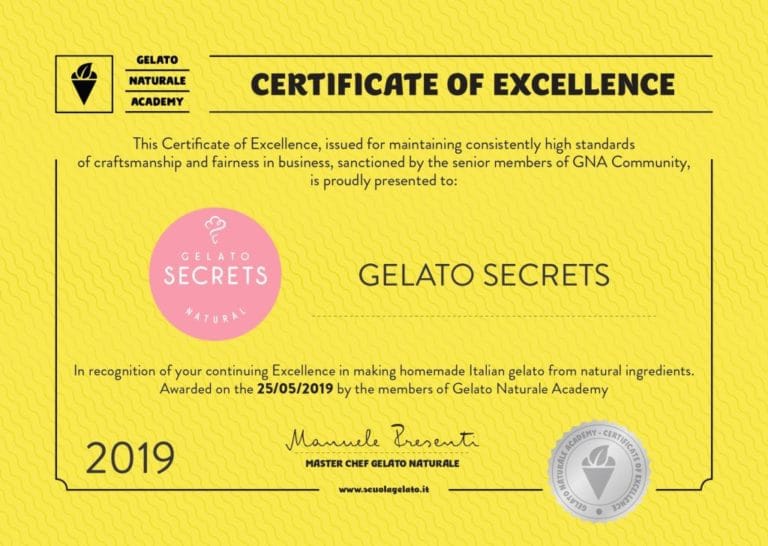0
Certified Natural Shops
Ice cream parlors in the world that follow the #nosemilavorati philosophy
A RECOGNITION AND A GUARANTEE
When we started over 10 years ago, nobody used the word “ natural “.
Now instead that it has become commonplace, we have felt the need to draw up a ethical code that goes to distinguish those who work by following a 100% natural method .
We want to give our students something extra and start certifying the ice cream parlors that really work only with natural ingredients .
This completely free certificate rewards those who for years work following our method and maintain the quality of natural ice cream in Italy and in the world.
Map of Certified Ice Cream Shops in the World
Certificate of excellence
The values it represents
The cardinal principles of our association are:
- Valorisation of the eno-gastronomic area.
- Independence and awareness.
- Transparency towards the consumer.
- Collaboration in the natural ice cream community.
ETHICAL CODE
- Do not use artificial colorings and semi-finished products that contain them, for the production of their craft products.
- Do not use hydrogenated vegetable fats, palm and rape oil and semi-finished products containing them.
- Do not use synthetic or natural emulsifiers and aromas.
- Do not use industrial flavoring pastes that an ice cream maker can easily prepare in the laboratory, thanks to his professionalism and the technologies available to him.
- Do not use U.H.T milk and whole milk powder
- Do not use industrial pastry products for making ice cream flavors, the ice cream maker can self-produce many pastry bases based on his professionalism and equipment, for the more elaborate ones such as the Panettone you have to go looking for products of the highest quality quality craftsmanship.
- Do not use industrial variegations or toppings.
- Do not use ready-made liquid bases and pre-balanced powder bases from semi-finished companies. All products that remove much of creativity and often oblige ice cream makers to follow the recipes imposed by companies.
- Preferably choose fresh products, possibly from their own territory, encouraging local economies, local gastronomic traditions, respecting seasonality and quality. Where possible from organic, fair trade and eco-sustainable crops.
- Work with the utmost respect for the environment, reducing waste and energy consumption, adopting eco-sustainable work systems and using compostable products.


